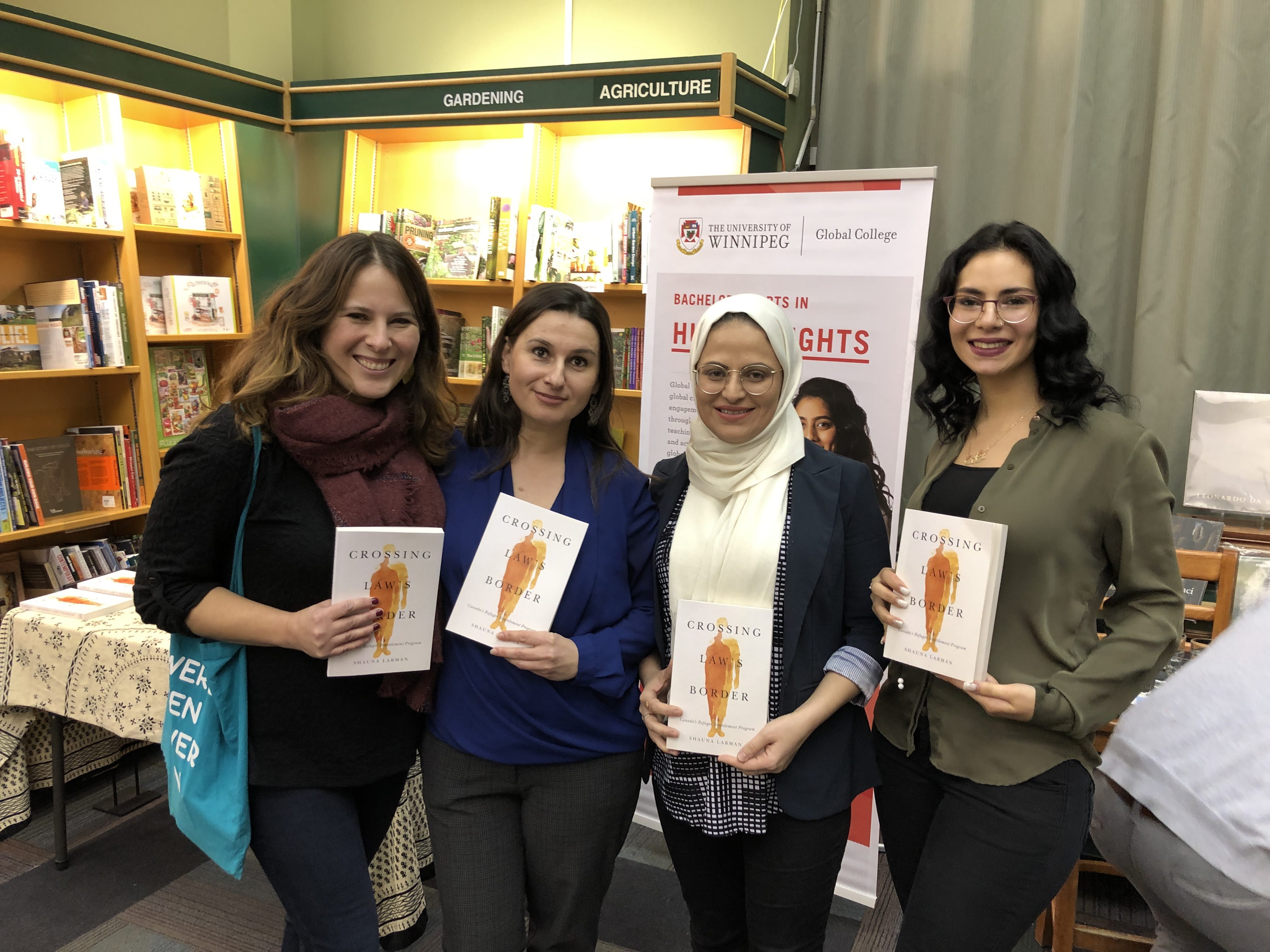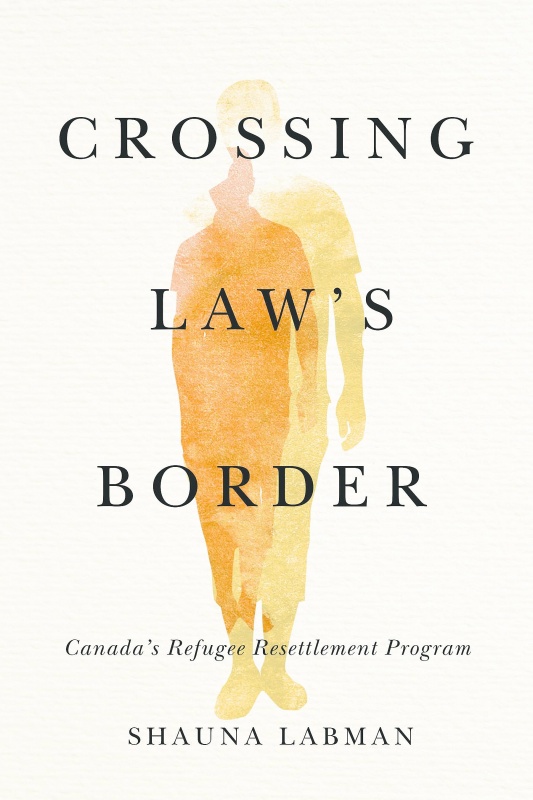Crossing Law's Border: Behind the Scenes
Posted: Wednesday, June 10, 2020
Written by Shauna Labman, University of Winnipeg
June 20th is World Refugee Day. Last year at this time Canada was celebrating that in 2018 Canada took in more refugees for resettlement (28,100) than any other country. On March 17th, 2020 the United Nations High Commissioner for Refugees and the International Organization for Migration paused all resettlement globally due to the COVID-19 virus. Just prior to this “pause” Canada had announced its plans to resettle over 30,000 refugees in 2020 – numbers that are now likely impossible. While we cannot now know what the future of Canada’s resettlement program looks like, Crossing Law’s Border gives an account of Canada’s resettlement program from the Indochinese crisis of the 1970s to Syrian resettlement that surged in 2015. Its insights into the interplay between resettlement and asylum and the entanglement of voluntary humanitarianism, private citizen support and legal obligation will be invaluable as Canada’s resettlement program is revived post pandemic.
My interest in resettlement began when I was working as a consultant for UNHCR in New Delhi, India. As a lawyer I had been hired to conduct Refugee Status Determinations but while I was there Canada somewhat unexpectedly agreed to consider the resettlement of a large number of Afghan refugees. My tasks were switched to conducting resettlement referral interviews and submitting cases for Canada to consider. It felt entirely ad hoc and unlike anything I had learned about refugees in law school which was limited to our domestic immigration legislation and the work of the Immigration and Refugee Board. I returned to Canada intent to write a masters thesis on point and then return to work with the UN. Entitled The Invisibles: An Examination of Refugee Resettlement, that work argues that refugees who fail to make it to the frontiers of safe states are simply not seen, with attention focused on asylum seekers. The masters felt like it was the tip of the iceberg and I decided to pursue doctoral work just as the Conservative government was coming into power and the boatloads of Tamils arriving on the west coast were triggering a tightening of our laws and diminishing access to protection. As I note in the book, it is interesting to reflect back on my early work’s focus on invisibility since the book shows how the intervening years have brought resettlement back to the forefront of visibility with the assertion that they are the only “real” or “genuine” refugees.
As a side note, the Phd was finished in 2013 and the book was essentially complete in 2015 but with the 2015 federal election promise to resettle 25,000 Syrians by the end of the year I elected to pull back and revise the book to accommodate this moment and use both the Indochinese and Syrian resettlements as sort of bookends to my observations.

When I launched the book here in Winnipeg in January 2020 instead of a typical launch I provided copies of the book to 3 women with different refugee backgrounds who I know well and asked them to read the book and choose some passages that they felt were important to speak to – the launch was therefore a panel of the 4 of us speaking. The women were:
- Dorota Blumczynska who is the Executive Director of IRCOM (The Immigrant and Refugee Community Organization of Manitoba) and also president of the Canadian Council for Refugees.
- Kobra Rahimi, a Kurdish-Canadian lawyer who was a law student of mine when I taught at Robson Hall (University of Manitoba) and spent the first 14 years of her life in a refugee camp in Iraq.
- Magi Hadad, who arrived in Canada as refugee from Syria in 2016 and was my student in fall 2019 at the University of Winnipeg in a course called Concepts and Conventions in Human Rights.

